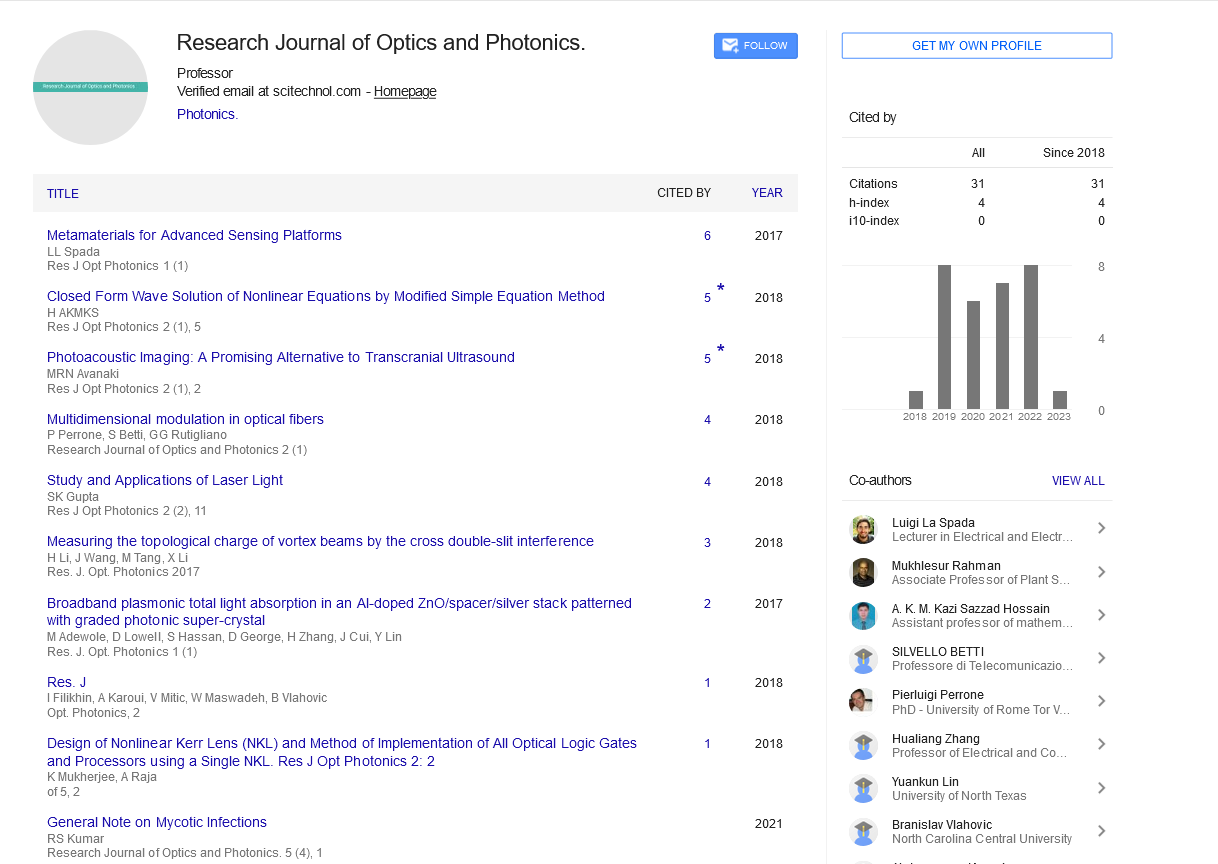Fabrication and Experimental verification of energy reversible SoI-NEM switch for Adiabatic Computation and Bio-Medical Applications
Abdulilah M Mayet
King Khalid Univeristy, Saudi Arabia
: Res J Opt Photonics
Abstract
In this work, I present the theoretical analysis and experimental verification of energy reversible Nano Electromechanical Switch (NEMS) for adiabatic computations and bio-medical applications. At its core, adiabatic circuits reduce power consumption significantly during logic operations using a four-phase power clock along with clever circuit arrangements which avoid the build-up of charges across a single transistor. The NEM switches can prove to be the ideal building blocks for these electronics chips as they present no leakage-current and therefore consumes very low static power. In particular, the energy reversible NEM switches can further reduce the power consumption in adiabatic circuits, since these switches conserve and reuse the mechanical bending energy stored in them in the first cycle, and for subsequent switching cycles. In this work, we have reported theoretical analysis and experimental proof of the benefits of using NEM switches (three-terminal and energy reversible, both) in place of traditional Complementary Metal Oxide Semiconductor (CMOS) transistor switches in adiabatic circuits, in terms of the energy dissipation per unit cycle of power clock for various power clock frequencies. Here, we have observed that the experimentally observed reduction in pull-in voltage (13%) for subsequent cycles of switching for energy reversible NEM switches, indicating a reduction in switching energy. It is found that the NEM switches promise to offer lower energy consumption for low-frequency operations (<100 kHz) and therefore it is recommended that it is best suited for biomedical and lowpower applications.
Biography
Abdulilah Mayet is an assistant professor at King Khalid University, teaching courses in Nanofabrication and FPGA for AI. He is also the director of the engineering college research center and consultant at the artificial intelligence center (AIC). He has joined King Abdullah University of science and technology (KAUST) and got his master's and doctoral degrees in electrical engineering in the field of microelectronics and doctoral research focused on innovating and fabricating new fully amorphous metal (patented) to fabricate nanoscale MEMS devices (NEMS), with a co-advisor from Cornell University. He earned his bachelor's degree from King Fahd University of Petroleum and Minerals (FUPM). He has a research collaboration with the University of California Irvine and Cornell University.
 Spanish
Spanish  Chinese
Chinese  Russian
Russian  German
German  French
French  Japanese
Japanese  Portuguese
Portuguese  Hindi
Hindi 